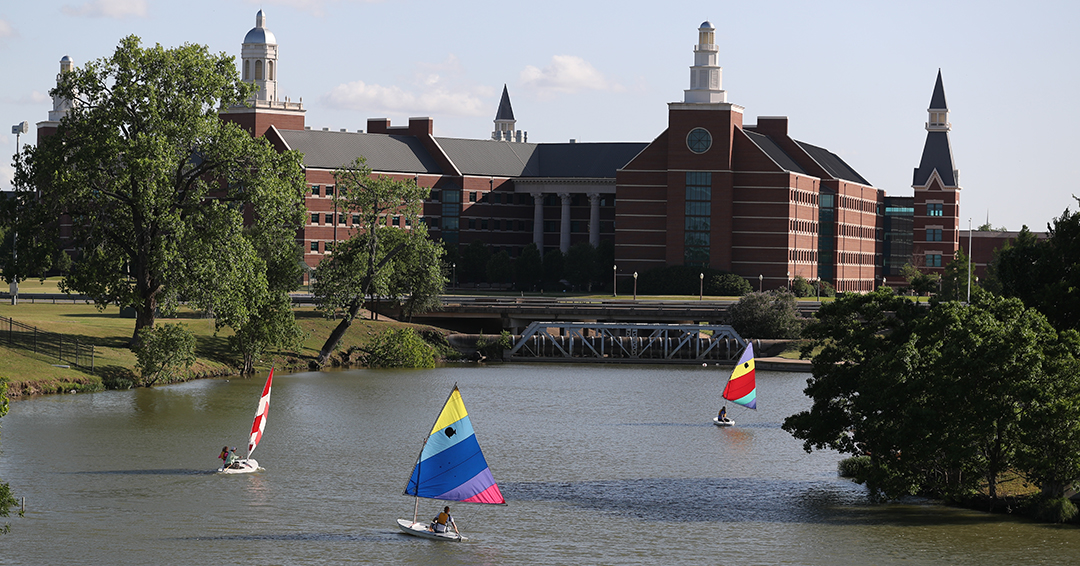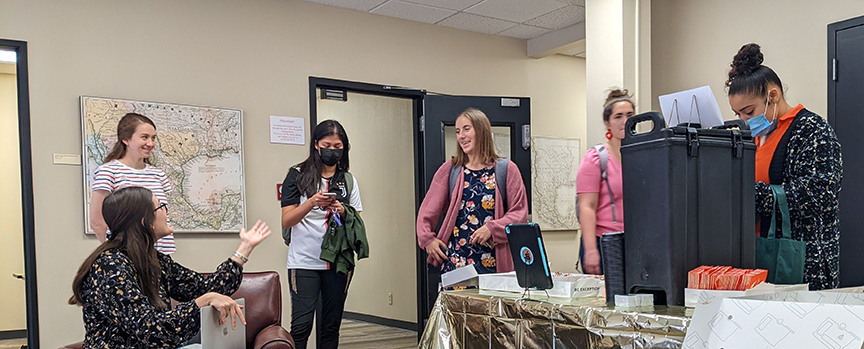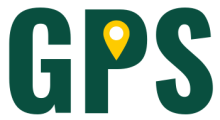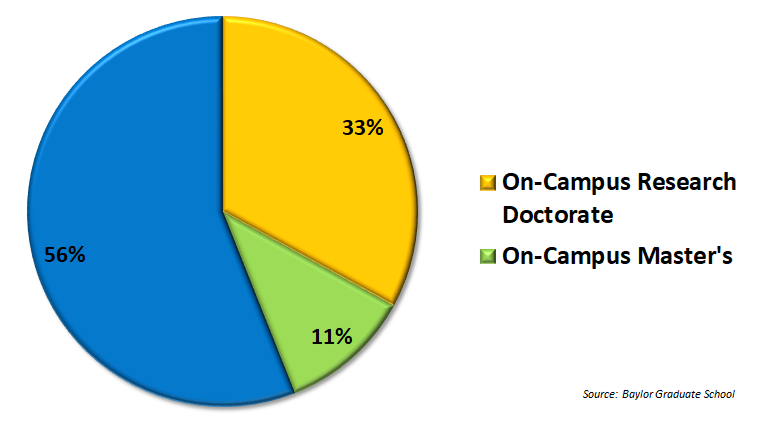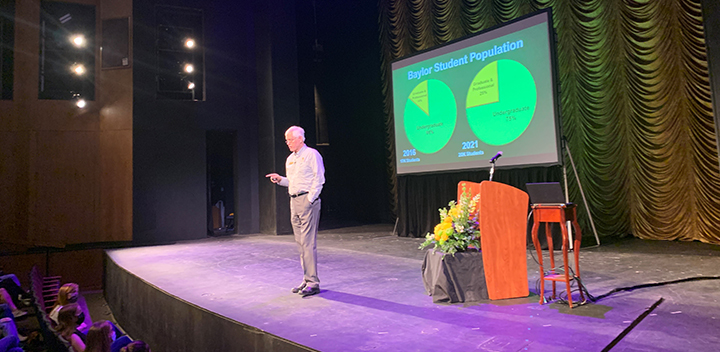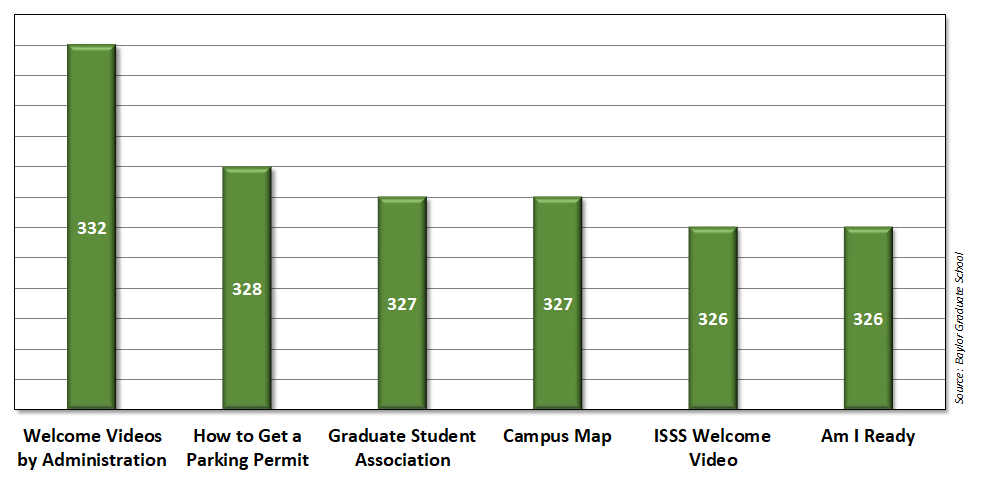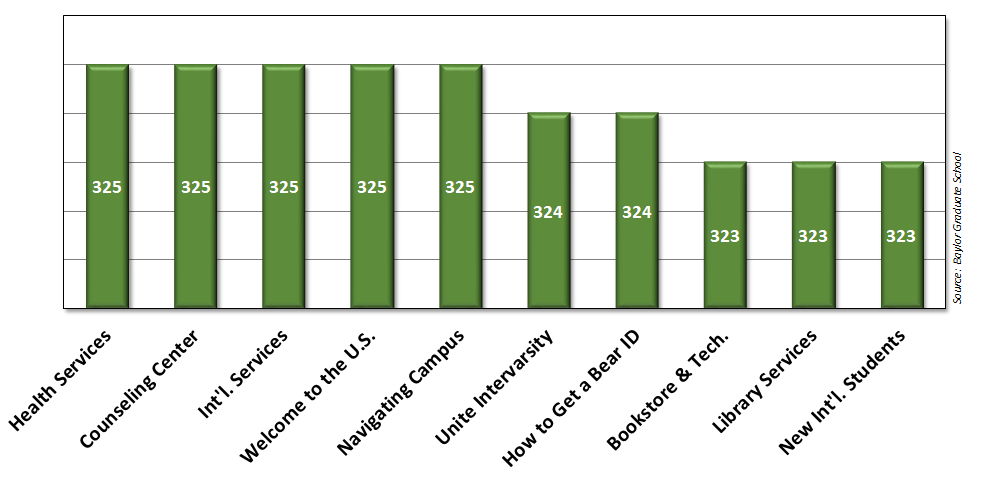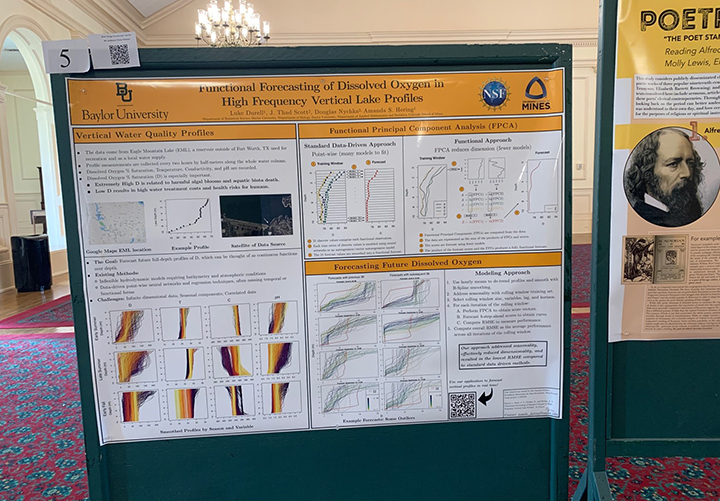Graduate Student Success
Diversifying Professional Development for Graduate Student Success
Beth Allison Barr, Associate Dean for Professional Development
Because our graduate students are different, professional development for our graduate students needs to be different too. The shift in our graduate student population to more doctoral students, more online and professional students, and more diversity within our student population has shifted how we think about student success. Yet, because of the solid foundation we have already established for helping students progress through their graduate programs, we haven’t needed to build new programming; we have simply expanded what we are already doing to meet the expanding needs of our students. In 2019 we merged our different strands of professional development workshops (Preparing Our Future Faculty, Life on the Grad Line, and STEM) into the streamlined Graduate Pathways for Success, or GPS workshops. Offering several of these workshops each semester, including a lunch for attendees, we walked students through such topics as establishing good relationships with faculty, navigating social media, improving writing skills, writing CVs, starting the job application process, and even interviewing well. Before 2020, these workshops were primarily geared toward our on-campus MA and PhD students. However, the tremendous growth in our online and professional graduate programs combined with the pandemic has changed our strategy—helping us see not only the importance of providing online and professional students with the same quality of services as our on-campus students but also spurring us to create several new online workshops.
Beginning in Spring 2022, our GPS workshops are available in two formats: online workshops that will be continuously available for online and professional students and our scheduled in-person workshops for on-campus students. As you can see from Figure 1, we have created 11 workshops which are readily available online (find our full descriptions here).
Figure 1: GPS Workshops
- Starting Well: The First Year with Your Advisor/PI
- Sciencing 101: Surviving the First Few Weeks as a STEM Grad Student
- Cultivating Your Professional Identity
- Beginning the Job Search
- Begin with the End in Mind: Envisioning Your Academic Career
- Panel for Academic Jobs
- Alternative Academic Jobs
- Alternative Academic ("Alt Ac") Careers
- How to Write A Lot
- Step Up Your Scientific Writing
- Compose Yourself Workshop: Preparing Your Curriculum Vitae
- How to Interview
- Mock Interviews: December 10, 2021
- Formatting Workshop
- Utilize the Graduate Writing Center for one-on-one consultations, workshops, and writing group placements.
If you look at the final bullet point on Figure 1, you will also see another growth area for professional development: the Graduate Writing Center (GWC). Launched in 2012, the GWC is staffed by advanced doctoral students at Baylor, follows the academic calendar for on-campus research doctorates, and is funded through the Graduate School. The GWC has grown from approximately 150 appointments the first year it launched to more than 350 appointments this year. Last Spring alone, the GWC recorded 200 appointments from 100 unique individuals—more than half of which came from our online and professional graduate programs (see Figure 2). The GWC staff are typically students in our on-campus research doctorate programs who work primarily during the traditional fall-spring-summer semesters of the academic year. Thus, many of our online and professional students with nontraditional academic calendars have not had access to GWC writing consultants during critical weeks of their programs. To better accommodate these students, the GWC has worked to include writing consultants from online and professional programs as well as to provide at least some writing services throughout the entirety of the academic year. Currently the GWC writing consultant staff includes advanced doctoral students from English, Biology, Public Health, and Education. To make sure we can meet the needs of all students, the Graduate School plans to expand the scope of the Graduate Writing Center even further by hiring a full-time staff coordinator to start in June 2022. We look forward to keeping you posted about this expansion.
Figure 2: Use of Graduate Writing Center by Program Type (Spring 2021)
Expansion has been the 2021 theme for professional development—expansion of existing programming to better accommodate more students. Two final examples stem from the collaboration between the Graduate School and the Graduate Student Association (GSA). First, GSA in collaboration with the Graduate School provides an annual New Graduate Student Orientation. After the pandemic forced an online pivot in August 2020, orientation returned to in-person for August 2021—offered as usual the Wednesday before Fall classes. Yet an online orientation was offered simultaneously. The viewing data indicates 453 students participated in online orientation, more than 300 of which viewed significant portions of the orientation—including welcome videos from President Livingstone, Provost Brickhouse, and Dean Lyon, as well as learning segments on how to navigate campus, how to access health and counseling services, and how to adapt to graduate school and life in Waco as an international student (Figures 3 & 4). It is striking that in August 2021, approximately the same number of students participated in the in-person orientation (337) as accessed the online version (325 active views received by several segments of the online orientation)—suggesting that many new students, regardless of whether on-campus or online, are invested in becoming a part of the broader Baylor community. The level of interest in the Health Services and Counseling services indicates how important these services are for our students. GSA and the Graduate School plan to continue hosting both online and in-person options for New Graduate Student Orientation in 2022. In this way, all students will continue to have the opportunity to benefit from our introduction to graduate student life at Baylor.
Figure 3: Online Orientation Programming: Highest Student Engagement
Figure 4: Online Orientation Programming: Next Highest Student Engagement
Second, GSA—like the Graduate School--recognizes that providing online orientation is only one part of integrating online and professional students into the Baylor community. In the past the Graduate Student Association largely represented the on-campus students directly under the purview of the Graduate School. However, GSA has worked with the Graduate School to provide funding for an additional position on the executive committee that will be filled by an online graduate student beginning in Spring 2022. This position will enable online and professional students to have the same representation as the on-campus research doctoral students and on-campus masters students; it will also allow GSA to have a better understanding of how the needs of online and professional students both align with and differ from the students who have been a part of GSA from the beginning. To make sure that all online and professional students have the same opportunities to participate in student government, GSA has begun providing both an online streaming option for students to join in their monthly assembly meetings and online opportunities for students to showcase their research—such as offering the online GSA Twitter Conference alongside the more traditional in-person Research Showcase. Online and professional students have even begun participating in GSA social events, such as the successful turnout of around 50 Occupational Therapy Doctoral students from Dallas attending the annual Grads-in-the-Water GSA event at the Baylor marina.
In short, as the graduate student population continues to expand—both in numbers as well as in diversity of students and programs—professional development is committed to expanding in kind.
